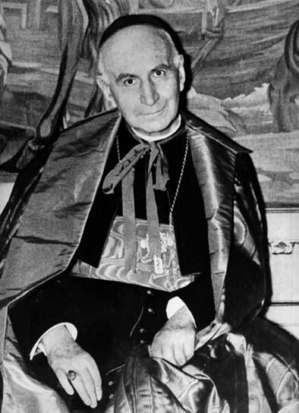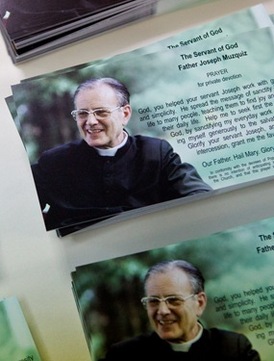 There’s a journalist, intellectual, politician and a cardinal whose sanctity is being studied: Ángel Herrera Oria.
There’s a journalist, intellectual, politician and a cardinal whose sanctity is being studied: Ángel Herrera Oria.
Tag: canonization
Joseph Muzquiz, priest: possible saint
 The Archdiocese of Boston announced on June 2 that it is taking to the next step in overseeing the study of the cause of canonization of Father Joseph Muzquiz (1912-1983).
The Archdiocese of Boston announced on June 2 that it is taking to the next step in overseeing the study of the cause of canonization of Father Joseph Muzquiz (1912-1983).
Who are saints? They are “Flesh and Blood Human Beings”
As Father Gabriel B. O’Donnell reminds, being a saint doesn’t mean that you are divested of your own personality, to have intimacy with God doesn’t mean you change who you are as a person. Domincan Father Gabriel O’Donnell is currently the academic dean at the Dominican House of Studies, Washington, DC.
What’s the difference between beatification and canonization?
Subtle
differences need certain light in a canonization process. Scholasticism
advocates that we always distinguish. Benedict XVI will be beatifying his
friend, colleague and boss, Pope John Paul II on May 1. So, the faithful are
asking what’s the difference between the ecclesial acts of beatification and
canonization?
The Holy See told us what’s considered to be the distinguishing
marks of any beatification. There are three differences:
- location of dioceses
that can hold annual public liturgical celebrations in the holy person’s honor; - who ceremonially requests the pope to act;
- and the level of papal authority
involved in the proclamation.
What Pope Benedict has worked hard to remind the
Church, “at a beatification ceremony, the bishop of the diocese where the
person dies asks that the candidate be declared blessed; at a canonization, the
prefect of the Congregation for Saints’ Causes speaks in the name of the whole
church and asks that the candidate be declared a saint.”
But a central
difference between a beatification and canonization is that with a canonization
there is an act of declaring dogmatically, that God has revealed this person
with Him in beatitude. Essentially, it is a matter of papal infallibility.
Being a saint is a dogmatic statement; being a blessed is not. A saint can be
liturgically commemorated at the sacred Liturgy worldwide and remembered in
other circumstances like naming buildings after the person. When the Church
says a person is a blessed, it is an administrative act of the papal office; a
blessed can be liturgically commemorated is limited to certain circumstances,
like where the person lives or in the houses of the religious congregation
should the person be a religious.
